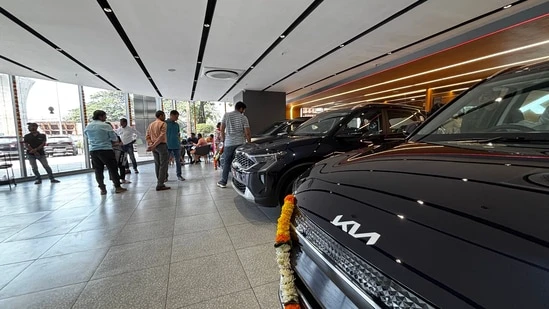Auto sales in India surged by a third in the last 10 days of September 2025 as buyers timed their car and two-wheeler purchases with new GST rates that kicked in with Navratri.
Retail two-wheeler sales, measured as the number of vehicle registrations on the government’s VAHAN portal, surged 34.95% year-on-year to 8,35,364 units during the Navratri period from 22 September and 2 October, according to data collated by the Federation of Automobile Dealers Associations. Car sales, during the same time, rose 34.87% to 2,17,744 units.
For the full month of September, two-wheeler sales rose 6.51% to 12,87,735 units while car sales increased 5.80% to 2,99,369 units, according to FADA data.
On 4 September, India reduced GST rates on hundreds of items-from soaps to small cars-as part of a move to rationalise the Goods and Services Tax into two slabs of 5% and 18% from four (5%, 12%, 18% and 28%) earlier. A new 40% slab has been introduced for so-called sin goods, while doing away with compensation cess altogether.
The new GST rates kicked in on 22 September to coincide with the beginning of Navratri-a period seen as auspicious for new purchases. The new GST rate on small cars now stands at 18% while larger cars are taxed at 40%.
“[The Navratri sales] reminded us what the right policy at the right time can do for a nation’s sentiment,” FADA Vice President Sai Giridhar said in a statement on Tuesday. “The reduction in GST rates-coupled with festive demand-led to renewed inquiries and bookings, although limited billing days restricted the full potential of the rebound.”
Dealers used this period to replenish inventory. They are now stocked with cars for the next 60 days, which will cater to the festive demand around Dhanteras and Diwali on 20-21 October.
“The momentum built in the closing days of September will carry forward into Diwali, marking a promising end to the 42-day festive period,” Giridhar said in the statement. “If the logistics and transport ecosystem performs seamlessly, this could very well be the best festive season India has ever experienced.”
